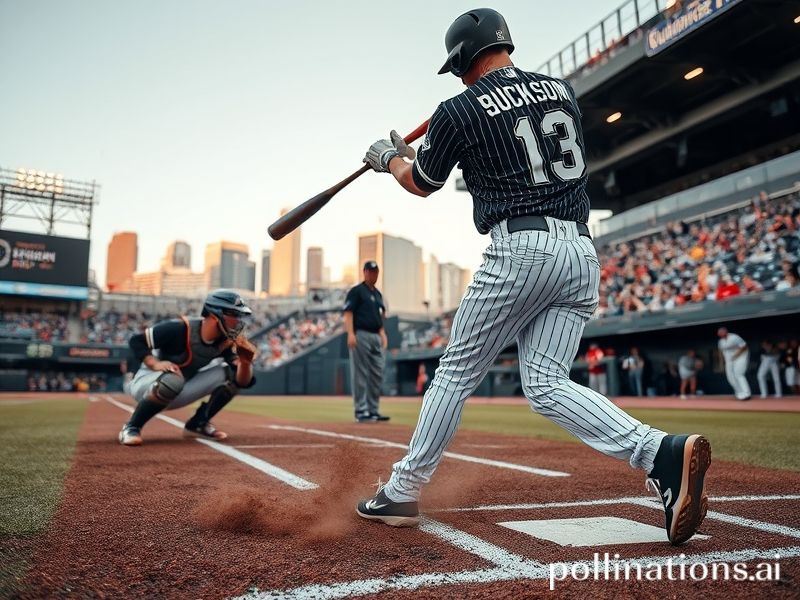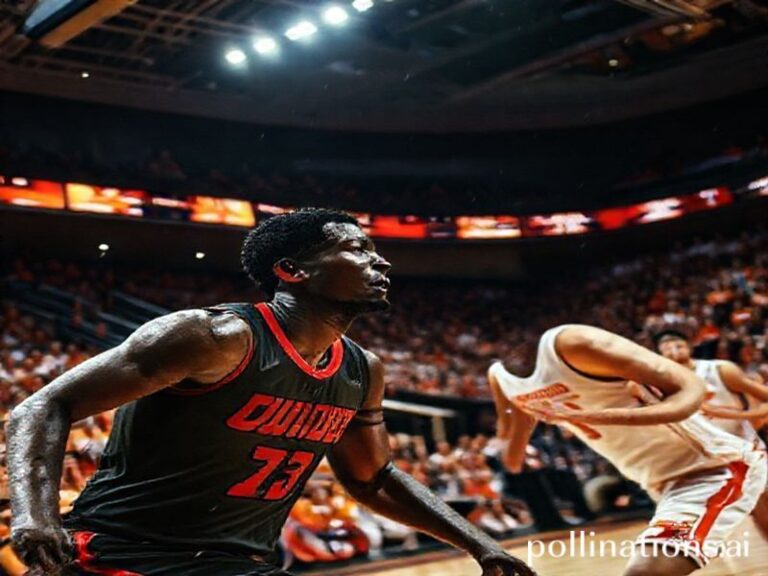White Sox vs Guardians: How a Midwestern Baseball Game Quietly Became a Global Economic Domino
If you were watching the White Sox and the Guardians on Monday night from a bar in Reykjavík, you might have wondered why the broadcast cut to a split-screen of grainy drone footage over the Red Sea every time José Ramírez stepped to the plate. The bartender—half-Icelandic, half-exasperated—would shrug and mutter something about “global bandwidth triage,” then flip the channel to a fishing documentary. That is, in microcosm, how a mid-May tilt between two Midwestern baseball teams now registers on the planetary Richter scale: a flicker of American pastoral nostalgia beamed into a world too busy arguing about shipping lanes, semiconductor sanctions, and whether the TikTok algorithm has become sentient.
The box score will tell you Cleveland won 7-3. The algorithm will tell you that this matters because it nudged the Guardians half a game closer to the Twins and nudged the White Sox ever nearer to mathematical oblivion. But the algorithm neglects to mention that in São Paulo, a currency trader used the seventh-inning stretch to dump another tranche of Turkish lira, while in Lagos a bus driver named Tunde refreshed his phone to see if Tim Anderson had reached base—because Tunde’s fantasy league buy-in is denominated in rapidly depreciating naira and he needs the serotonin more than the rent money.
Baseball’s charm, of course, is its stubborn refusal to acknowledge the apocalypse. Two clubs named for nineteenth-century labor movements and genocidal mascots duke it out in a publicly funded Brutalist donut while the outfield wall advertises a Japanese conglomerate’s cloud-storage solution. Somewhere in the upper deck, a man in a MAGA hat shares garlic fries with a woman in a Che Guevara T-shirt; they are united only in their mutual distrust of the automated beer-pour robots that keep short-changing them by 0.7 ounces per “large.” This, too, is diplomacy in our century.
Internationally, the game’s ripple effects are as absurd as they are real. The Guardians’ win nudged FanGraphs playoff odds by 3.2 percent, which in turn shifted offshore betting markets in Manila, which in turn caused a minor tremor in the price of microchips used in ballpark turnstiles. (The chips are made in Taiwan, shipped through the Suez, delayed by Houthi hobbyists, and finally installed by subcontractors who moonlight as Uber drivers.) Analysts at the Bundesbank, ever the killjoys, have modeled a theoretical six-game losing streak for Chicago as a 0.0004 percent drag on U.S. Q3 consumer sentiment, which they dutifully footnoted next to their forecast for European natural-gas futures. Everything is connected; nothing is consequential.
Meanwhile, the White Sox themselves have become a sort of geopolitical Schrödinger’s cat. Their front office insists the rebuild is “on schedule,” a phrase that translates roughly to “we’re tanking so hard we may accidentally tunnel into rare-earth deposits.” If they do, Beijing will notice, because the only thing China loves more than rare earths is a distressed American asset it can scoop up on the cheap. Imagine the press release: “Inner Mongolia Heavy Industries Announces Strategic Partnership with 35th & Shields, Pledges to Replace Jumbotron with 8K Quantum-Dot Display Capable of Live Facial Recognition.” Even the vendors’ beer prices will be yuan-denominated by then; the garlic fries will come with a side of sesame-soy dipping sauce and ideological re-education.
Still, the players persist in treating nine innings as a self-contained universe. Shane Bieber struck out ten because Shane Bieber has never heard of the Strait of Hormuz; Luis Robert swung through a slider because, at that moment, the slider was the only sovereign entity he had to worry about. It is easy to mock such tunnel vision—until you remember that the alternative is doom-scrolling through satellite images of burning tankers. There is something almost heroic, in a doomed sort of way, about insisting the infield-fly rule still matters while the planet’s permafrost melts into artisanal cocktails.
When the final out landed harmlessly in the glove of rookie left-fielder George Valera—whose surname sounds like a Spanish budget airline—Cleveland fans exhaled. White Sox fans muttered something unprintable about the closer’s spin rate. And 4,000 miles away, a teenager in Accra closed the illegal stream just before the Europol pop-up appeared, satisfied that his $2 side-bet had tripled. The world spun on, indifferent but weirdly synchronized, like a cosmic double-play grounded in the absurdity of being alive.







